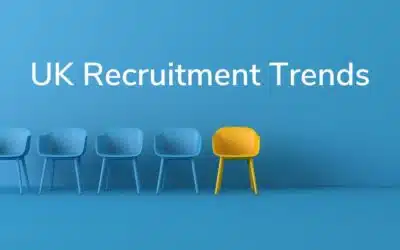During my time in telecommunications in the late 1990s, recruiting some specialist IT roles was a challenge and we used a scheme called the “Golden Hello” which is a signing bonus to attract people into key roles. I’ve heard this phrase again recently as employers pull out the stops to compete for talent. With the current recruitment challenges and skills shortages, this has made its return just at the right time.
Over the last year the employment landscape in the United Kingdom has shifted dramatically and workers are realising their importance in various industries. Employers need workers more than ever and employees know they are vital to the sustainability of businesses. This has seen the re-emergence of “Golden Hello’s”.
What is a ‘’Golden Hello’’?
“Golden hello” became more commonly used and recognised during the late 20th and early 21st centuries, as competition for top executives in various industries intensified. It reflects the increasing value and competition for high-level corporate talent in the global market.
A ‘’Golden Hello’’ is a signing bonus used to entice in-demand workers to take up employment within your business from a rival business. This bonus is usually in the form of a large single cash payment that the employee will receive when they have joined your business.
These golden hellos have recently soared as high as £10,000 for registered night nurses in Scottish Care Home’s. This is a sign of a recruitment crisis and reflects how far recruitment are willing to go when compared to average wages for these jobs. These are short-term solutions for a long-term problem and workers must proceed with caution when accepting this financial incentive. Contracts could include a training period or otherwise stated fixed period, where resignation during this time will require the worker to pay back the bonus partially or in full. Although this can be attractive, it is designed to plug urgent gaps quickly and can disregard other duties of care in the contract, such as training.
The “Pingdemic” has forced many businesses to use a Golden Hello scheme. With thousands of people being notified via mobile phone that they must isolate, industries have slowed down as people have been forced to take weeks off work with no warning. Alternatively, slight wage increases and increasing the minimum number of staff on the payroll are other options which give worker’s incentives and leverage for their services.
The Benefits of a Golden Hello
A golden handshake can help attracting talent
It can be an effective tool for attracting highly skilled and sought-after professionals to an organisation, especially in competitive job markets.
Competitive Edge
Employers offering a golden hello payment may gain an edge over their competitors in securing top talent, regardless if they’re looking to fill vacancies for executives, find social worker or social care candidates or healthcare professionals.
Immediate Financial Reward
For the new employee, a Golden Hello provides an immediate financial benefit on top of their basic pay, which can be especially appealing.
Commitment Incentive
Such bonuses may encourage employees to commit to staying with the new employer for a certain period, as these bonuses sometimes come with conditions related to tenure.
Filling Critical Roles Quickly
In sectors where certain skills are in short supply, it can speed up the process of filling critical vacancies.
However, it’s important to note that while there are benefits, this method can also create expectations for high compensation and may impact the internal pay equity within an organisation. Employers should carefully consider these factors when deciding to offer such bonuses.
How Successful are Golden Handshakes?
The concept of “golden hellos” in the UK has seen varied success across different sectors. Some notable case studies highlight the outcomes and challenges associated with this practice:
- Teaching Sector: The UK government previously ran a “golden hello” scheme for priority subject teachers, which ended in 2019. More recently, several retention payment schemes have been implemented to attract the best new teachers in areas that have a high need for teachers. These schemes, including up to a £3,000 “levelling up” premium, have shown positive impacts on teacher retention. However, the success has been mixed due to various operational challenges and changes in the demand for teachers in specific subjects. For example, a scheme offering payments of up to £5,000 aimed to attract science and maths teachers and those willing to work in certain areas. However, a loophole in the scheme’s rules meant that some teachers, such as supply teachers, were ineligible for the payment, leading to feelings of disillusionment in the profession.
- Nursing Sector: A “golden hello” scheme in the nursing sector, offering £10,000 to postgraduate nurses working in specific understaffed specialisms, was announced by the government over four years ago. However, despite the significant time lapse since the announcement, not a single payment had been made to eligible postgraduate nurses in these areas. This delay caused frustration among the nursing community and raised questions about the effectiveness of such schemes in addressing workforce challenges in healthcare.
These case studies indicate that while “golden hellos” can be a potential tool for addressing staff shortages in specific sectors, their effectiveness is heavily dependent on the design and implementation of the schemes. Operational challenges, changing market demands, and the need for clear and inclusive eligibility criteria are key factors that influence the success of these initiatives.
Legal and Ethical Considerations
Legally, one of the primary considerations is taxation. In the UK, payments made as a “golden hello” are taxable and subject to National Insurance. Depending on the amount, employees may face big deductions and may find this less desirable.
Ethically, this type of incentive can present several challenges. They are often seen as a short-term solution for a long-term problem in industries facing recruitment crises. While effective in attracting talent, they can create expectations for high compensation and potentially impact internal pay equity within an organisation. Furthermore, these bonuses might come with conditions related to tenure, such as requiring the employee to stay with the company for a certain period or repay the bonus if they leave earlier. This raises ethical concerns about fairness and the potential for exploitation, especially in industries where skills shortages are acute.
What’s the difference between a Golden hello and Golden Parachute?
“Golden hellos” and “golden parachutes” are both financial incentives used in the business world, but they serve different purposes and occur at opposite ends of an employee’s tenure with a company.
A “golden hello” is a sign-on bonus or financial incentive given to an employee, often a high-level executive, when they join a new company. The aim of a golden hello is to attract top talent to the organisation, especially in competitive fields or for roles that are hard to fill.
In contrast, a “golden parachute” refers to a substantial financial package promised to an executive in the event of termination, usually as a result of a merger or acquisition. It typically includes severance pay, cash bonuses, stock options, or other benefits. The purpose of a golden parachute is to provide security for top executives in case of a sudden job loss due to corporate restructuring or takeover. It’s also used as a deterrent against hostile takeovers, as the financial obligation to the outgoing executives can make the takeover more expensive and less appealing to the acquiring company.
In essence, while a golden hello is a welcome incentive for joining a company, a golden parachute is a safety net provided in case of an unexpected exit from the company. Both are tools for managing executive transitions, but they address different phases and concerns in an executive’s career trajectory.
The Future of the Golden Hello
In the evolving landscape of work, characterised by gig economies and changing employee expectations, the role and nature of “golden hellos” may undergo significant transformations. Firstly, as the gig economy continues to grow, these bonuses might become more prevalent in attracting top freelance talent for short-term, high-impact projects, rather than being confined to permanent executive roles.
Secondly, in a workforce increasingly valuing flexibility and work-life balance, “golden hellos” could be restructured to include not just financial incentives, but also benefits aligned with these values, such as flexible working arrangements or wellness programs.
Lastly, as employee expectations evolve, there might be a shift towards more transparent and equitable structures for these bonuses to address ethical concerns and ensure fair treatment across all levels of an organisation.
Alternative Strategies for Talent Retention
Beyond the use of a “golden hello,” there are several effective alternative strategies for talent retention that focus on long-term employee engagement and satisfaction. One key approach is investing in comprehensive professional development programmes. These programmes not only equip employees with new skills and knowledge, making them more valuable to the organisation, but also signal the company’s commitment to their career growth, which can boost loyalty and job satisfaction.
Another strategy is fostering a positive workplace culture. Creating an environment that values inclusivity, collaboration, and work-life balance can significantly enhance job satisfaction. This includes recognising and rewarding employee achievements, providing flexible working conditions, and ensuring a supportive management style.
Employee benefits tailored to the needs of the workforce, such as competitive health benefits, retirement plans, and wellness programmes, also play a crucial role in retention. These benefits demonstrate the organisation’s care for its employees’ well-being beyond the workplace.
Additionally, offering clear career progression paths and regular feedback can motivate employees. This not only helps them understand their role in the company’s future but also provides them with a sense of purpose and direction.
In essence, while monetary incentives like “golden hellos” can be attractive, focusing on the overall employee experience and career development can foster a more committed and content workforce, which is crucial for long-term talent retention.
Contact Us
Overall, if you’re looking to attract high-level employees to your business, the ‘’Golden Hello’’ method may be for you. If you would like to find out more about this or need help to drive your recruitment efforts forward, contact us.







